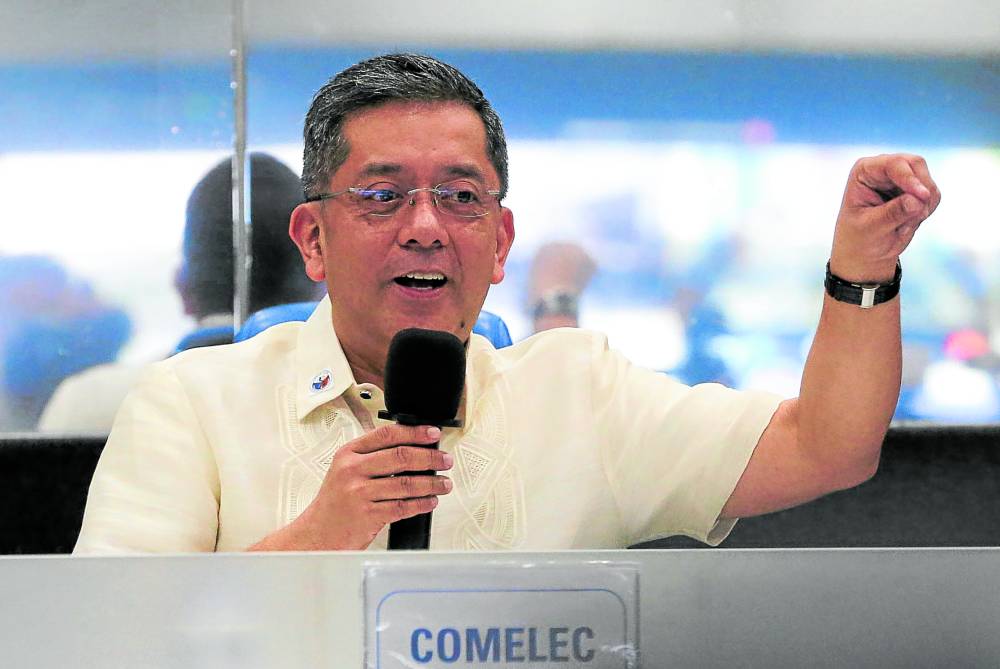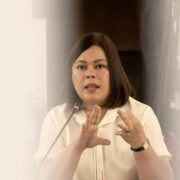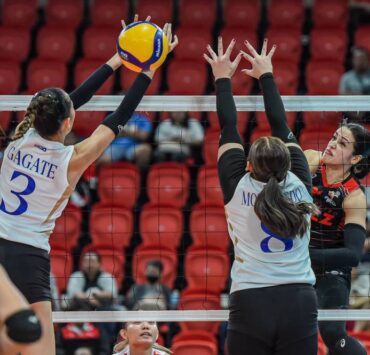BARMM elections need P2.5B, says Comelec

The Commission on Elections (Comelec) is seeking P2.5 billion to fund the holding of a separate schedule for the parliamentary elections in the Bangsamoro Autonomous Region in Muslim Mindanao (BARMM).
“We don’t have a separate budget for P2.5 billion which we will need for the honoraria of teachers [serving as election inspectors], lease of [counting] machines, printing of ballots and to procure folders, indelible ink and other paraphernalia,” Comelec Chair George Erwin Garcia said in a forum in Manila on Wednesday.
On Tuesday, Congress, through the bicameral conference committee of the House of Representatives and the Senate, reset the BARMM regional elections from May 12 to Oct. 13 this year, five months after the conduct of the national and local elections.
Garcia recalled that Congress slashed P14 billion from Comelec’s budget for this year, which was crafted with the conduct of the national, local and Bangsamoro parliamentary and barangay elections in mind.
“We don’t have P2.5 billion, we don’t have a source for it, we don’t have savings,” he added.
Based on the experience of the previous elections, about 65 percent of the expenses funds the honorarium of teachers.
The Senate version of the law, which largely prevailed in the bicameral conference discussions, said the October regional polls “shall not be treated as a special election and shall be considered a continuation of the 2025 national and local elections.”
Hence, “any amount obligated prior to the resetting of the Bangsamoro election shall remain valid” and that the required budget to conduct the new poll schedule “shall be charged against the current year’s appropriations of the Comelec or any available appropriations as may be identified by the Department of Budget and Management …”
The political exercise, if held on May 12, will not cost Comelec much as it will merely be sharing the expenses for the national and local elections, except for the printing of separate ballots, Garcia noted.
Welcome
Additional logistics costs aside, the postponement of the regional polls was welcomed by BARMM leaders and Presidential Peace Adviser Carlito Galvez Jr.
Galvez said the postponement would enable the Bangsamoro government to institute the necessary amendments to key legislation such as the Electoral and Local Government Codes.
These revisions, he explained, would align these codes with the Supreme Court’s decision to exclude Sulu from the BARMM, and cushion the impact of the high court’s ruling on the province.
In a statement, the BARMM government lauded President Marcos and the House of Representatives and the Senate “for recognizing the unique challenges faced by the region and for taking decisive action to ensure a strong foundation for autonomous governance.”
Sulu’s fate
On Wednesday, the Senate committee on local government convened a public consultation on Senate Bill No. 2915 filed by Sen. Juan Miguel Zubiri that seeks to hold another plebiscite in Sulu to give the province’s people another shot at ratifying the Bangsamoro Organic Law (BOL) and hence, of joining the BARMM.
Sulu Gov. Abdusakur Tan, who was among those invited in the hearing, brushed aside the proposed measure as no longer necessary.
“I’m sure 90 percent of our people will say no. We no longer want to; we want to be alone. In fact we don’t want to be attached to any of the regions, we just want to be under the national government,” Tan said.
Zubiri said this new opportunity to vote on the question would “now [be] guided by the positive experiences that they have enjoyed over the past six years under the Bangsamoro government.”
During the 2019 plebiscite to ratify the BOL, some 301,156 valid votes were counted, or a turnout of 80 percent. Of these, 163,526 voted “no” while 137,630 voted “yes,” or a defeat margin of only 25,896.
On the other hand, the Office of the Presidential Adviser on Peace, Reconciliation and Unity (Opapru) expressed support for the Zubiri measure.
“The inclusion of Sulu in BARMM is not only a territorial realignment. It is a reaffirmation of the Bangsamoro people’s collective aspiration for peace, development and self governance,” said Opapru Undersecretary David Diciano. —WITH A REPORT FROM RYAN D. ROSAURO

















